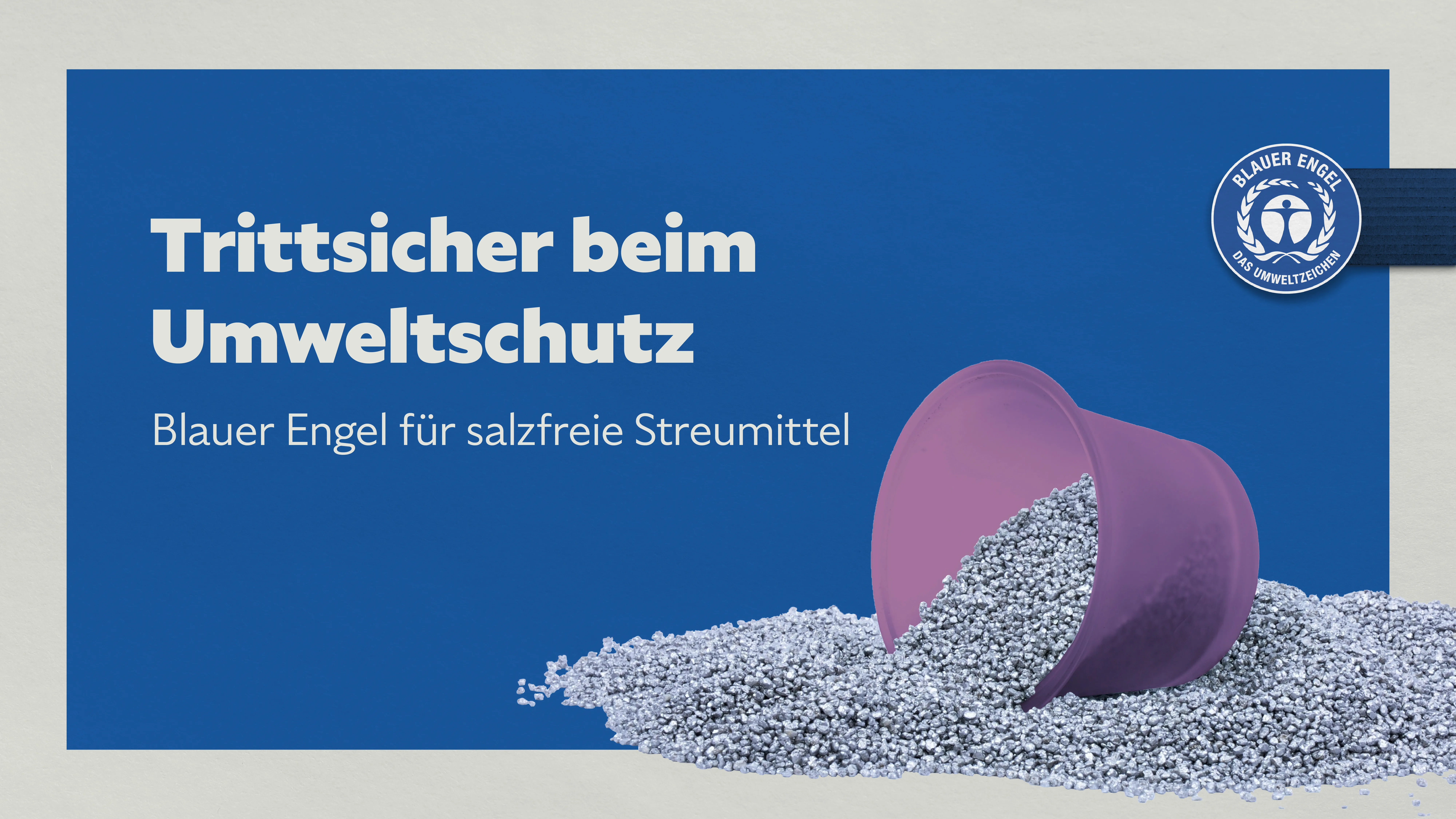Icy roads and pavements pose a significant risk in winter. However, many conventional types of grit, especially de-icing salt, have a negative impact on plants growing by the side of the road, animals, soil and bodies of water – and, in urban areas, on discharge into the sewer system. Vehicles, buildings and road surfaces also suffer from the use of salt. Many towns and communities in Germany have thus been putting a legal stop to conventional de-icing salt for some time now, banning or at least significantly restricting its use. Salt-free grit made from sand, chippings or granulate matter offers a gentle alternative here. It reduces the risk of slipping without also harming the environment. Products with the Blue Angel guarantee compliance with strict environmental criteria.
De-icing salt: a danger for habitats and animal paws
The use of de-icing salt has a negative impact on the environment, especially on the habitats of plants and wild animals. Wastewater containing salt also contaminates bodies of water and the soil. Trees and shrubs suffer from the accumulation of salt in the ground and become more susceptible to illness.
Alongside damage to vegetation, de-icing salt also poses a danger to pets. Dogs and cats can injure their paws when they come into contact with the salt. Licking the salt can also be harmful to their health. Environmentally safe grit protects not only wild animals and their habitats, but also the paws of our animal companions.
“De-icing salt may seem effective as the proverbial ‘first step’, but its environmental impact in the medium to long term is far-reaching. High salt concentrations harm plants, the soil and bodies of water, attack buildings and vehicles, and can lead to high costs,” says Janine Braumann, responsible for public relations for the Blue Angel ecolabel at the German Environment Agency.
Snow and ice: environmentally-friendly clearing and gritting
The choice of alternatives lies in the hands of the population itself. In particular, quickly clearing snow immediately after it falls prevents the snow from being trodden down and becoming more difficult to remove.
Sand, chippings and granulate matter offer an environmentally friendly alternative when tackling black ice. However, in order to be sufficiently effective, abrasives must be applied with a high spreading density. The recommended dosage is approx. 100 g/m². Nevertheless, one advantage of abrasives is that they can be brushed up and reused once the snow melts. The Blue Angel provides guidance when making purchases and indicates environmentally friendly, salt-free grit.
In addition to the environmental damage caused by dying trees and shrubs, which have to be replanted, de-icing salt can also have significant economic consequences. It attacks concrete and steel, which leads to corrosion damage to vehicles and buildings. Damage to listed buildings is especially problematic, as the salt that has penetrated the structure can no longer be removed from the masonry, which can lead to irreversible disintegration processes.



